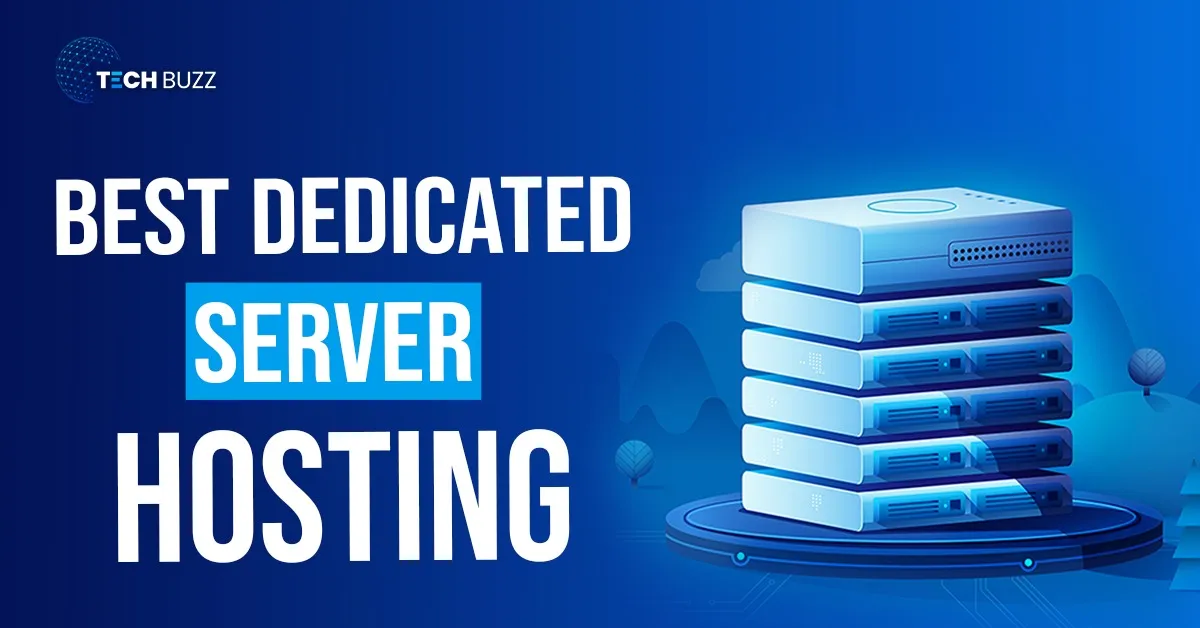In the ever-evolving digital landscape, choosing the right hosting solution is crucial for businesses and individuals aiming to ensure optimal website performance, security, and scalability. Dedicated server hosting services stand out as a premier option, offering unmatched reliability and control. This guide delves into the intricacies of dedicated server hosting services, highlighting their benefits, working mechanisms, key considerations, and more.
What is Dedicated Server Hosting?
Dedicated server hosting refers to a type of web hosting where an entire server is allocated to a single client. Unlike shared hosting, where multiple clients share server resources, dedicated hosting provides exclusive access to all the server’s resources, ensuring enhanced performance and security.
Benefits of Dedicated Server Hosting Services
- Enhanced Performance
- Dedicated servers offer superior performance as resources are not shared with other users. This results in faster load times, better handling of traffic spikes, and an overall improved user experience.
- High-Level Security
- With dedicated server hosting, you have complete control over security configurations. You can implement advanced security measures, such as custom firewalls, DDoS protection, and secure backups, to safeguard your data.
- Customization and Flexibility
- Dedicated hosting allows for extensive customization. You can choose the operating system, software, and configurations that best meet your needs, ensuring your server environment is tailored to your specific requirements.
- Reliability and Uptime
- Dedicated servers are known for their reliability and high uptime. With resources solely dedicated to your site, you can expect fewer downtimes and consistent availability, which is crucial for maintaining customer trust and SEO rankings.
- Dedicated IP Address
- A dedicated server comes with its own IP address, which is essential for running SSL certificates and other security protocols. This also helps improve SEO rankings as your IP address won’t be affected by the activities of other websites.
How Dedicated Server Hosting Services Work
When you opt for dedicated server hosting, a physical server is rented from a hosting provider. The provider is responsible for housing, operating, and maintaining the server, while you are responsible for managing the software and applications running on it. Here’s a step-by-step breakdown:
- Server Selection
- You select a server configuration based on your performance, storage, and bandwidth needs.
- Server Setup
- The hosting provider sets up the server hardware and installs the operating system of your choice.
- Configuration
- You configure the server settings, install necessary software, and set up security measures to protect your data.
- Ongoing Management
- The hosting provider maintains the server hardware, ensuring optimal performance and addressing any hardware issues. You manage the software, updates, and backups.
Choosing the Right Dedicated Server Hosting Service
Selecting the right dedicated server hosting service involves evaluating several key factors:
- Performance Needs
- Assess your CPU, RAM, storage, and bandwidth requirements. High-traffic websites and resource-intensive applications require more robust configurations.
- Security Features
- Ensure the provider offers comprehensive security features, including DDoS protection, firewalls, and regular backups.
- Customer Support
- Opt for a provider that offers 24/7 customer support. Reliable support is essential for quickly resolving any issues that may arise.
- Scalability
- Choose a provider that offers scalable solutions, allowing you to upgrade your server resources as your business grows.
- Reputation and Reviews
- Research the hosting provider’s reputation and read customer reviews to ensure they have a track record of reliability and good service.
Dedicated Server Hosting Services vs. Other Hosting Options
- Shared Hosting
- Shared hosting involves multiple websites sharing the same server resources. While cost-effective, it often results in slower performance and reduced security compared to dedicated hosting.
- VPS Hosting
- Virtual Private Server (VPS) hosting provides a middle ground, with each client receiving a portion of a physical server’s resources. While more customizable and performant than shared hosting, it doesn’t offer the same level of control and reliability as dedicated hosting.
- Cloud Hosting
- Cloud hosting uses a network of virtual servers to host websites, offering scalability and flexibility. However, dedicated hosting provides more consistent performance and security for high-traffic and resource-intensive websites.
Setting Up and Managing a Dedicated Server Hosting Service
- Initial Setup
- The hosting provider sets up the server hardware and installs the operating system. You can choose from various OS options like Linux or Windows.
- Configuration
- Configure the server settings, install necessary software, and implement security measures. This includes setting up firewalls, intrusion detection systems, and regular security audits.
- Performance Optimization
- Optimize server performance by configuring caching, load balancing, and other performance-enhancing techniques. Regularly monitor server metrics to identify and address any bottlenecks.
- Security Management
- Implement robust security measures, including regular updates, secure backups, and monitoring for potential threats.
- Backup and Disaster Recovery
- Regularly back up your data to ensure you can quickly recover in case of hardware failure or data loss. Use automated backup solutions for efficiency and reliability.
Cost of Dedicated Server Hosting Services
The cost of dedicated server hosting services varies based on several factors:
- Server Configuration
- High-performance servers with advanced CPUs, large amounts of RAM, and extensive storage will cost more.
- Bandwidth and Network Speed
- Higher bandwidth and faster network speeds increase the cost.
- Additional Services
- Managed hosting, advanced security features, and backup solutions add to the overall cost.
- Location
- The data center location can affect the cost due to operational expenses and infrastructure quality.
While dedicated hosting is more expensive than shared or VPS hosting, the benefits of enhanced performance, security, and control often justify the investment.
Transitioning to Dedicated Server Hosting Services
Transitioning to dedicated server hosting involves careful planning:
- Evaluate Current Needs
- Assess your current hosting requirements and performance metrics to determine the appropriate dedicated server configuration.
- Choose the Right Provider
- Select a hosting provider with a proven track record of reliability and good customer support.
- Plan the Migration
- Develop a detailed migration plan, including timelines, resource allocation, and potential downtime. Coordinate with your hosting provider for a smooth transition.
- Backup Data
- Perform a complete backup of your website and database before migration to prevent data loss.
- Set Up the Server
- Work with the hosting provider to set up and configure the dedicated server.
- Test the Server
- Thoroughly test the server to ensure everything functions correctly before going live.
- Update DNS Settings
- Update DNS settings to point to the new server and allow time for propagation.
- Monitor and Optimize
- Monitor server performance and make necessary adjustments to optimize performance and security.
Conclusion
Dedicated server hosting services offer unparalleled performance, security, and control, making them ideal for high-traffic websites, large businesses, and resource-intensive applications. Understanding the benefits and workings of dedicated hosting helps you make an informed decision that aligns with your specific needs. By choosing a reliable provider and following best practices for setup and management, you can ensure a robust and reliable hosting environment for your online presence.







